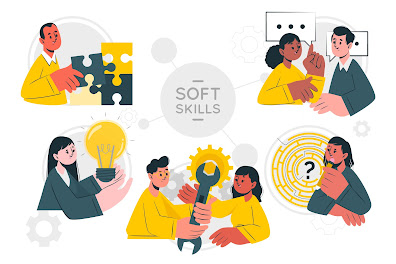The Impact of AI in the Level 3 Certificate in Assessing Vocational Achievement
Introduction:
In the dynamic landscape of education, the integration of Artificial Intelligence (AI) and technology is reshaping how we approach assessments. Specifically, the Level 3 Certificate in Assessing Vocational Achievement is experiencing a transformative shift. In this blog, we'll delve into the integration of AI and technology in the assessment process, exploring how it can address issues like biases and unfair assessments.
Challenges in Traditional Assessments:
Before we journey into the world of AI, let's take a moment to understand the challenges inherent in traditional assessment methods. Biases, subjectivity, and inconsistencies often plague conventional assessment processes, leading to concerns about fairness and accuracy.
1. Biases in Assessment:
Traditional assessments can unintentionally incorporate biases based on various factors, including the assessor's background, experiences, and personal beliefs. This can lead to unequal treatment of learners, hindering the assessment process's fairness.
2. Subjectivity:
Human assessors, while well-intentioned, bring subjectivity into the evaluation process. Interpretation of responses, grading standards, and individual perspectives can vary, impacting the consistency and reliability of assessments.
3. Inconsistencies:
The manual nature of traditional assessments can result in inconsistencies across different assessors and assessment sessions. This lack of standardization poses a challenge to maintaining the reliability of the assessment process.
How AI Addresses These Challenges:
Now, let's explore how the integration of AI and technology in the Level 3 Certificate in Assessing Vocational Achievement qualification can effectively mitigate these challenges and pave the way for a more objective, fair, and consistent assessment process.
1. Minimizing Biases:
AI algorithms are designed to be impartial, making decisions based on predefined criteria rather than subjective judgments. By utilizing AI, the assessment process can be stripped of inherent biases, ensuring that learners are evaluated on their merit rather than external factors.
2. Objective Evaluation:
AI facilitates a more standardized and objective evaluation of assessments. Automated grading systems can provide consistency in scoring, reducing the impact of individual assessor subjectivity. This ensures that learners are assessed against a set standard, promoting fairness across the board.
3. Enhancing Consistency:
The integration of AI in assessments brings about a level of consistency that is challenging to achieve with manual grading. AI-driven tools ensure that the same standards are applied uniformly to all assessments, irrespective of the assessor or assessment location.
Specific AI Applications in Assessment:
Let's explore some AI applications that can be seamlessly integrated into the Level 3 Certificate in Assessing Vocational Achievement to address these challenges:
1. Automated Grading Systems:
AI-powered systems can automate the grading process, providing instant and consistent feedback to learners. This not only accelerates the assessment timeline but also ensures objectivity in grading.
2. Natural Language Processing (NLP):
NLP can be employed to analyze written responses, gauging the depth of understanding and providing insights into the learner's knowledge. This helps in standardizing the evaluation of subjective components of assessments.
3. Data Analytics for Performance Insights:
AI-driven data analytics can offer valuable insights into learner performance trends. Educators can identify areas of strength and weakness across cohorts, enabling targeted interventions to support learners in their vocational achievement journey.
Ensuring Ethical Implementation:
While the integration of AI brings promising solutions to assessment challenges, ethical considerations must guide its implementation. Here are key principles to ensure ethical AI use:
1. Transparency:
Clearly communicate the use of AI in assessments to learners, ensuring transparency about how their work will be evaluated.
2. Continuous Monitoring:
Regularly monitor AI systems to identify and address any biases that may emerge over time. Continuous improvement ensures a fair and unbiased assessment environment.
3. Human Oversight:
Maintain a balance by incorporating human oversight in the assessment process. While AI enhances efficiency, human judgment is crucial for nuanced evaluations and addressing complex situations.
Conclusion
The integration of AI and technology in the Level 3 Certificate in Assessing Vocational Achievement heralds a new era in assessments, promising fairness, objectivity, and consistency. By leveraging AI applications like automated grading, NLP, and data analytics, educators can revolutionize the assessment process. However, ethical considerations must guide this transformation, ensuring that the benefits of AI are harnessed responsibly. As we embrace the synergy of technology and education, let us pave the way for assessments that truly reflect the knowledge and skills of learners, fostering a more equitable and inclusive learning experience.

.jpg)


Comments
Post a Comment